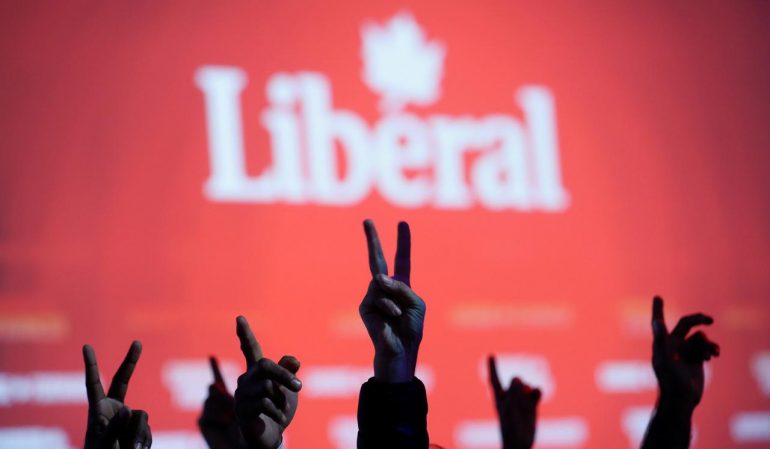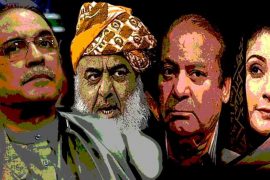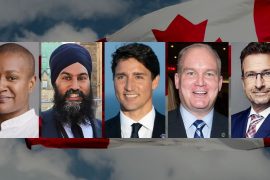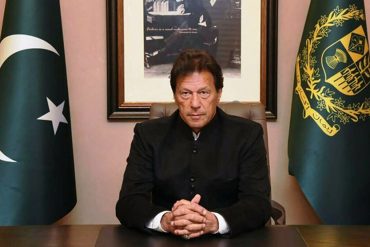STRAIGHT TALK by Hafeez Khan
The Canadians have spoken through their votes. It is a sobering verdict. The results are summarized in the table below.
| 2019 Election Results | |||||
| Leader | Justin Trudeau | Andrew Scheer | Jagmeet Singh | Yves Blanchet | Elizabeth May |
| Party | Liberal | Conservative | New Democratic | Bloc Quebecois | Green |
| Seats | 157 | 121 | 24 | 32 | 3 |
| Change | -27 | +22 | -20 | +22 | +2 |
| Pop. Vote | 5,915,950 | 6,155,662 | 2,849,214 | 1,376,135 | 1,162,361 |
| Percentage | 33.10% | 34.44% | 15.90% | 7.70% | 6.50% |
| Change | -6.37 pp | +2.51 pp | -3.81 pp | +3.04 pp | +3.05 pp |
The Liberals shed seats, yet held onto 157 of them. 170 seats are required for a majority government. With highest number of seats, Liberals will be invited to form a minority government.
The Conservatives gained 22 seats raising their count to 121. Yet the much anticipated blue tide failed to materialize. Bloc Quebecois (BQ) in Quebec received a verdict in their favor. BQ not only regained their official party status, they increased their seat count from 10 in 2015 to 32 seats.
NDP’s presence in Parliament dropped from 44 seats to 24 despite having a popular leader. Their late surge failed to convert into seats largely due to losses in Quebec. Green Party improved their presence in Parliament by increasing their count to 3 seats. The recently formed Peoples’ Party of Canada with an ultra right wing agenda was decimated.
So what is the message that nearly 18 million voters delivered federally?
They have given their preference to let Justin Trudeau govern for another term through a minority rule, with some caveats. There will be no more solo flights. Governance will be through consultation and consensus building. A fact accepted by Mr. Trudeau in his first press conference after the elections.He was quite subdued and realistic. With the present seat count he is not required to form a coalition government. That is a relief to Liberal supporters.
When called upon to form a government, the Liberals should be able to obtain a vote of confidence. No party is in a hurry to go into another election. Also the electors are known to punish spoilers if support is withheld for selfish reasons.
Conservatives, the 2nd biggest party, are the only ones with a rightist agenda. They are unlikely or unable to mount a challenge. No party with centrist or leftist views will support them.
The voter turnout was high at 67%. The issues closest to Canadian hearts cut across party lines. Whatever their party affiliations, over 2/3rd of the voters support:
- Actions to counter climate change.
- Execute the oil pipeline project linking Alberta to Pacific coast within the framework laid out by Supreme Court.
- Continue efforts to support the middle and the struggling classes.
Implementation of this agenda will require deft handling, mustering support across party lines. It would require the ability to work out arrangements with parties both to the right and left of Liberals for each agenda item. Mr. Trudeau and his teams’ skill sets will be severely tested. Politics makes strange bedfellows. I wish him all the best.
For readers not familiar with Canada, it has 10 provinces and 3 territories. The total federal seats are 338. There are 27.4 million registered voters. Riding boundaries are population based. Vote rich Ontario and Quebec make up nearly 60% of the ridings. Politically the country can be carved into six regions namely Atlantic Canada, Quebec, Ontario, Western Canada, British Columbia and the Northern Territories.
But the devil is in the detail. Various regions of Canada have spoken out boldly.
There is a traditional divide between urban centers mostly voting Liberal or NDP and rural areas voting Conservative. That trend continued in these elections.
Despite some losses in Atlantic Canada, Quebec and slight erosion in fortress Ontario, these three regions gave the numbers required to form a Liberal Government.
The major cause of concern is Western Canada. Liberals yielded three incumbents in Manitoba, and were shut out in Alberta and Saskatchewan. This reaction from Western Canada is a loud and clear message of dissatisfaction prevailing there.
The elephant in the room is the delay in building the oil pipeline that will move oil to alternate markets. This delay has caused great economic pain for the citizens there. The unemployment has increased drastically. Businesses have shut down. While Liberals undertook some major investments in this sector, work is stalled while court’s conditions are met. A tough situation, but I believe strategies are afoot to resolve this setback.
British Columbia has seen a shift to the right. Conservatives emerged as the leading party with 17 seats followed by 11 each for the Liberals and NDP. The Green Party gained some ground by adding one seat. A mixed message that needs to be deciphered.
The Quebec nation holds its secularism very dearly. Bill 21 enacted by Quebec legislature upholds this belief and adherence to its traditions and history. Quebecers are emotionally invested in ensuring its implementation. It has some contentious sections that could trample religious freedom of some communities. For example, a ban on public workers in positions of authority from wearing religious symbols, like hijab.
Bloc Quebecois was able to tap into this reservoir because they have no stakes outside Quebec. Federal parties were lukewarm because they have to uphold multiculturalism. This led to resurgence of BQ at the cost of NDP and Liberals.
So as we wait for the events to unfold I want to congratulate all the friends in GTA on their re-election. All the three candidates I wrote about, Omar Alghabra, Iqra Khalid and Salma Zahid were successful. They all increased their winning leads from the 2015 elections. A tribute paid by a happy electorate. Congratulations to all.





